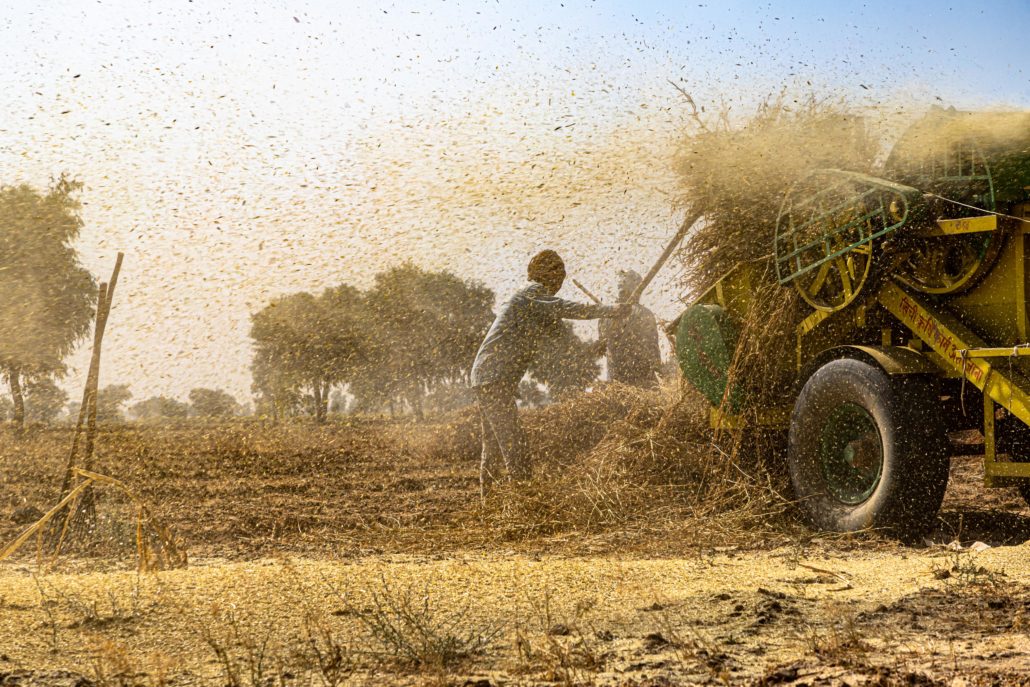As we grapple with reduced food supplies, the United Arab Emirates, Israel, and India are creating an India-Middle East Food Corridor or the India-UAE Food Corridor, a supply network for food relying on new inventions and investments. For the US, this supplies a geopolitical counterweight to China’s commercial presence across the region. At the July 2022, I2U2 summit, a historic meeting between leaders from India, Israel, the UAE, and the United States, the corridor featured prominently, leading to mistaken impressions that the corridor stood for a US-sponsored Middle East Quad. The corridor is neither anti-China nor a new initiative. The corridor had been evolving without the US.
The role of UAE and Israel in India’s food supply chain
The geographical, political, and economic significance of the India-UAE Food Corridor rests on the critical roles the UAE and Israel have already been playing in advancing India’s food production and distribution systems. The normalisation of Emirati and Israeli relations following the signing of the Abraham Accords enables direct cooperation among the three countries and the corridor’s strategic power derives from it developing organically among the countries themselves, through private sector investments cultivated through public-private partnerships. Although not requiring Washington as a patron, American participation in the corridor could prove beneficial as the US looks to bolster its strategic presence in Asia.
Bringing together India’s Prime Minister, the UAE’s President, Israeli Prime Minister, and President Joe Biden, the I2U2 summit looked to promote joint investment in food, water, energy, transportation, health, and space. As a result of the I2U2 summit, the UAE will invest $2 billion in building food parks in India which will use Israeli and US climate-smart agritech, clean tech, and renewable energy technologies. The food parks have already been a fundamental element in the UAE’s cooperation strategy since 2019. Israeli innovations in agriculture, environmental protection and renewables have been an irreplaceable part of Indian food production for even longer than that.
How the India-Middle East Food Corridor originated
The India-UAE Food Corridor initiative developed as a bilateral solution to the Gulf states’ requirement for greater robustness in their food supply chain and India’s desire to improve their production value. For this reason, two of India’s primary objectives are enhancing value in food processing and protecting distribution by integrating farm to retail. In 2017, India signed 14 Comprehensive Strategic Partnership agreements with the UAE, India’s third-largest trading partner. Within the deals were three that referred to India’s main concerns through establishing relationships in processing, maritime transport, and freight coordination and warehousing. These agreements serve as the basis for the corridor.
In February 2022, the UAE signed a Comprehensive Economic Partnership Agreement with India that ends tariffs on 90% of mutually traded products. The countries followed the Emirati and Indian trade, in May 2022, by the signing of a free trade agreement between the UAE and Israel that will see the removal of tariffs on 96% of goods. Since the Abraham Accords, UAE-Israeli bilateral trade has surpassed $2.45 billion, with first quarter 2022 bilateral trade exceeding $1 billion. The parties expect the Emirati and Israeli trade agreement to boost that trade by $10 billion over the next five years.
Trilateral coordination
These trade agreements have allowed the three countries to begin trilateral coordination. Beginning trilateral dialogue with them was the next step in advancing the India-Middle East Food Corridor project. From this perspective, the unusual aspect of the I2U2 summit was the quadrilateral format with participation from the United States. Israel’s statement that an Indian company had bought Israel’s Haifa port served as an indication that the corridor possesses economic potency.
The UAE-Israel-India trilateral formation could serve as the basis of larger commercial configuration in the western Indo-Pacific by later including other Gulf states, Egypt, or countries from the Horn of Africa. For the US, keeping abreast of developments in the India-Middle East Food Corridor will be an important factor in the realignment of the region.
Learn more about how B2BE support the supply chain with our range of innovative solutions, including EDI, Facturation électronique et Distribution des documents.
